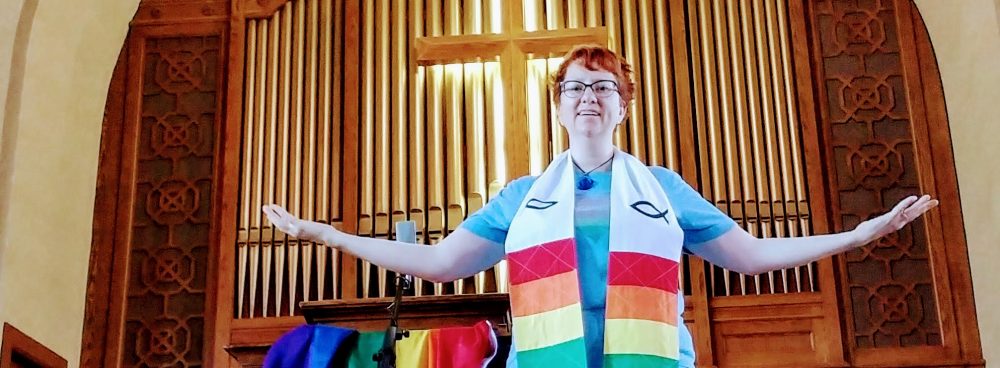 Below is the story of the manna and quail from Exodus 16:1-18 as told by someone following Moses into the wilderness:
Below is the story of the manna and quail from Exodus 16:1-18 as told by someone following Moses into the wilderness:
Two months ago, Moses arrived at the Pharaoh’s palace in Egypt. Hekept bugging pharaoh to let the people go. As long as Moses was around, bad things kept happening to Pharaoh and the people of Egypt. Pharaoh would tell us we could leave. Then he’d change his mind. Something bad would happen. He’d tell us we could leave. Then he’d change his mind again. This went on for a couple of weeks. Finally, Pharaoh relented. We packed our belongings in a hurry—only what we could carry. We headed out. Again, Pharaoh changed his mind and his army chased us with chariots. I was so afraid as we fled. Then we stood in front of the Red Sea and wondered how we would cross. That army was getting closer. Moses stood at the front of our group and prayed to God. The waters parted, and we walked across. Before the army could follow us, the water closed again. We were safe. I prayed and gave thanks for being out of that place and away from the army. Finally, after generations of suffering, we are free.
We followed Moses out into the desert. I’ve been hungry for days. My family hasn’t eaten, and I’m getting worried about what will happen next. We complained to Moses and his brother Aaron, but they don’t seem to care or be able to do anything. All of us will starve to death if something doesn’t change soon. Maybe that was their plan all along. Bring us out of Egypt to destroy us. Maybe Moses isn’t really the leader we think he is.
Just a minute, something’s happening. Aaron is getting ready to speak on Moses’ behalf. What kind of a leader doesn’t get up and speak directly to the people? Here’s what Aaron has to say. “Why are you complaining to us? Why are you angry with us? God is the one you should be angry with. God led you and us out here into the wilderness. It’s not our doing but we have prayed to God, and God will provide. Tonight before you sleep, the quail will fill the camp, and you may eat. In the morning, there will be bread. When you get up in the morning, gather enough bread for everyone in your tent for one day. Do not gather more or less than what you need.”
In this story, the people complaining. They are afraid of the unknown in the wilderness. They are uncertain of what to come. They blame Moses and Aaron for leading them into the unknown. They blame Moses and Aaron for not providing for them. When they complain to Moses and Aaron, they are really complaining about God. It is God who has led all of them into the wilderness. It is God who has not provided.
The people left Egypt with limited resources. Now they find their resources dwindling and what are they to do? They complain a bit. It doesn’t solve the problem, but it probably makes them feel better for a few minutes. After some complaining and after Moses has a conversation with God, there is a promise of food. The food will appear every day except the Sabbath—quail for the evening meal, bread for the rest of the time. They are to gather only enough for one day and only enough for their tent. Would you trust in the middle of the desert that there would be food available every day? I might just be out there gathering a bit more than I need—just in case.
But a strange thing happens in the story. Many people follow my logic. They gather more than they need. When they measure it, the amount is the same as people who gathered less than they needed. If they tried to save it for another day, it spoils. It can’t be saved. In this way, there was enough for everyone. No one went hungry. No one went hungry while others ate their fill.
When might think about our resources we could ask ourselves: What is enough for one day? Can we trust that there will be enough each day? Can we give thanks for what we do have? If we trust that we will have enough, we can be generous with the world around us.
We often feel like we might be in a desert with lack of resources—either inner resources or external resources. I think sometimes that congregations are prone to this. We complain about lack of people. We worry about having enough money. Do we trust and believe in what God is doing in and through each one of us?

